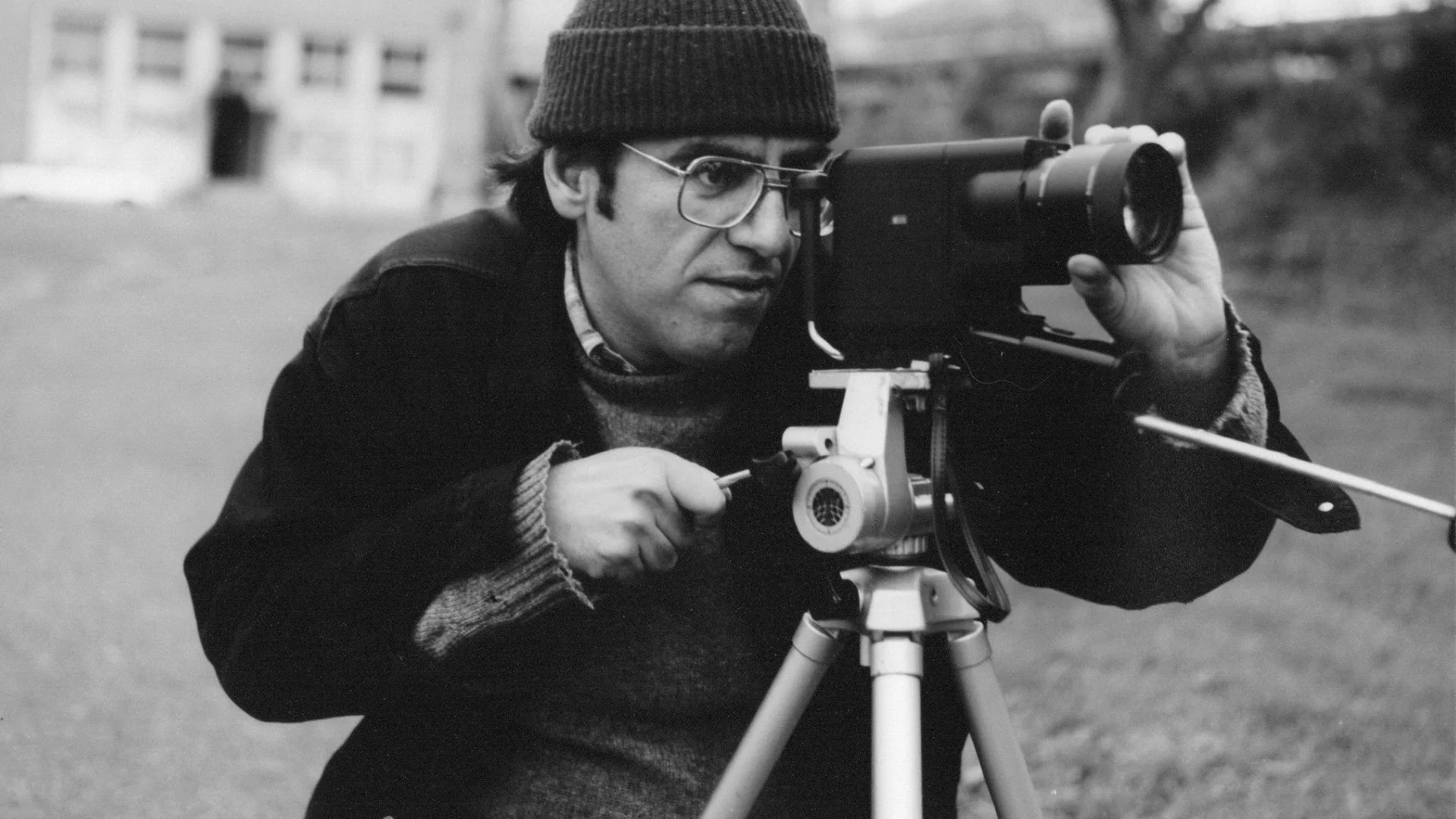Greek Australian Bill Mousoulis, 61, has been a film-maker since the 1980s. He didn’t go to university or film school, but was simply, and courageously, led by his passion for film. Referred to as an indie (independent) film-maker, Bill is a true artist indifferent to the type of mainstream film-making which is motivated by profit.
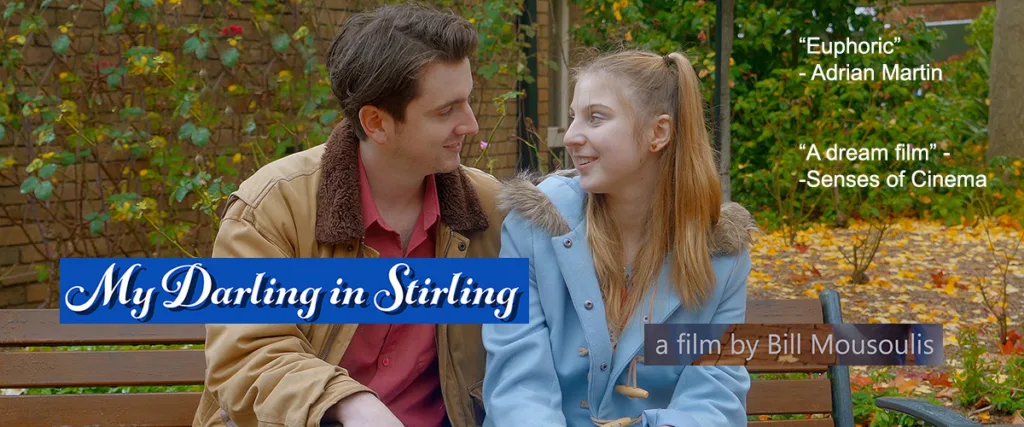
I interviewed Bill Mousoulis two years ago. This time though, I decided on a different approach: to discuss what I thought of his latest film, My Darling in Stirling after recently seeing it, and then to ask Bill what he thinks of my review of sorts.
My Darling in Stirling is showing at the Ritz cinema in Sydney on October 16 (Melbourne’s had its screening, while Brisbane’s date is October 26 and Adelaide is November 30).
On watching My Darling in Stirling in its entirety, a phrase that I’d heard somewhere came to mind: “The space between the notes.”
To me, this implies a delicate, latent time frame bordering on the metaphysical. Something akin to the quiet pauses in conversation (if we dare these days), veiling truths amidst an almost ethereal zone. A zone or space that we cannot easily tune into in this fast-paced world bombarding us with information we more often than not unwittingly, allow to overwhelm our senses drowning out the many subtle, awe-inspiring moments in our lives.
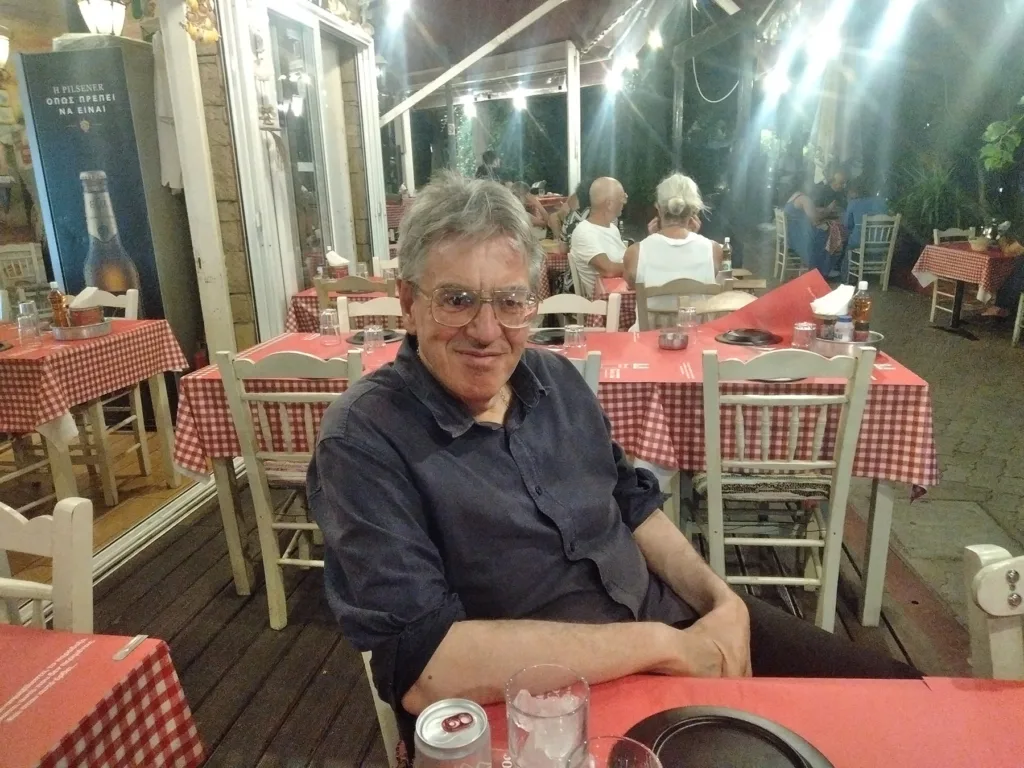
This is where Bill’s latest film is an antidote to all that stress in our lives, and it’s a musical. By no means overwhelming with loud bellowing voices and exaggerated prancing dance moves. Its one or two dance scenes are so graceful and natural that you’re just… lifted – by the notes, but also by the spaces in between; the images, environment and characters expressions and movements. It all flows.
It took me a bit of time to adjust to all of the spoken dialogue being sung, including actually fighting my cynical streak declaring “what’s this goody two shoes stuff?!” But that was in the first five minutes or so. And though I was captivated, my defensive “street wise” programming was being shaken.

My socially conditioned notions particularly prevalent in the last decade, have led me to lack trust in outside sources of information. This includes entertainment, but such mistrust just didn’t feel right at a gut level upon being ‘challenged’ with watching My Darling in Stirling.
These realisations about my uncomfortable comfort zone of defensiveness, perhaps in case I get disappointed by this film or actually like it (!), or that I may be wasting my ‘busy’ time, led me to take good stock of myself; something which I haven’t seriously done in years. I didn’t like this hard and almost bitter me that I was confronted with – not the real me.
These thoughts presented themselves throughout the first third or so of the film, until I let go, and was mesmerised (and I’m not sure which of the two states come first, but it doesn’t matter). My Darling in Stirling overwhelmed me soothingly with its magic: its depiction of simplicity, of life, of wisdom, enhanced through music and song.
Bill seems to feel and give shape to that space within the notes in his sensitive perceptiveness and portrayal of human nature in his films. Unlike the written word of fiction that grants us its descriptiveness from where we can make images in our own mind, film gives us these images.
The images that most modern films give along with their dialogue (and plot) may propel us into another world, but they also tend to keep us grounded in our world more often than not. They tend to remind us of the aforementioned busyness and harshness with fewer and fewer moments of innocent joy but also pain, in between. It is this in-betweenness, this bitter-sweetness of our own reality, of our own lives, that confront us in My Darling in Stirling.
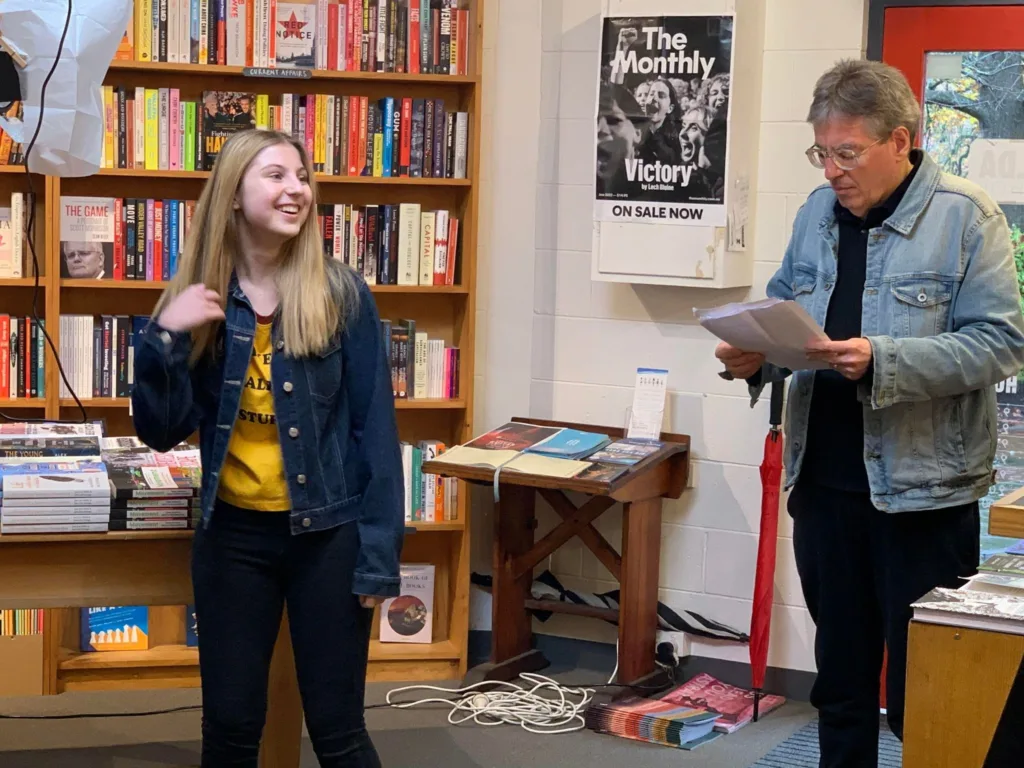
A few days after my viewing of the film, a Greek cousin aged 60 who has spent most of his life in the USA, and who considers himself a bit of a ‘ladies man’ with the cockiness that comes with such a lifestyle attitude, came to visit. I really wasn’t in the mood for his “miss the old days, when women were women and men were men” talk, so I suggested we watch a film: This film – My Darling in Stirling.
In hindsight, it wasn’t that I perhaps subconsciously wanted to irritate him, like he often irritates me, but I wanted him to learn to really chill and soften up a bit, to let that bravado go, because I know he’s a really nice person deep down, pardon the cliché.
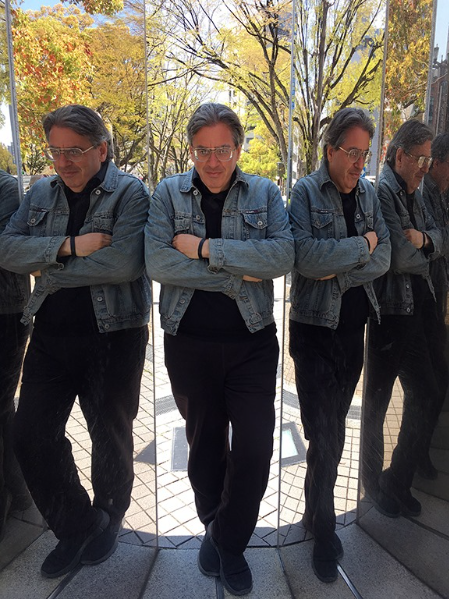
So, I sat beside him and enjoyed the movie again while casting glances his way now and then, all the while feeling he was either going to explode into some “soy boy” type narrative which he often expounds, or look at his watch and suddenly remember a pending appointment. He did neither. He just sat there. Quietly. At one point, I swear, I saw his eyes water. This tough old dog (and I love dogs, and no, I’m not ageist), caught the magic!
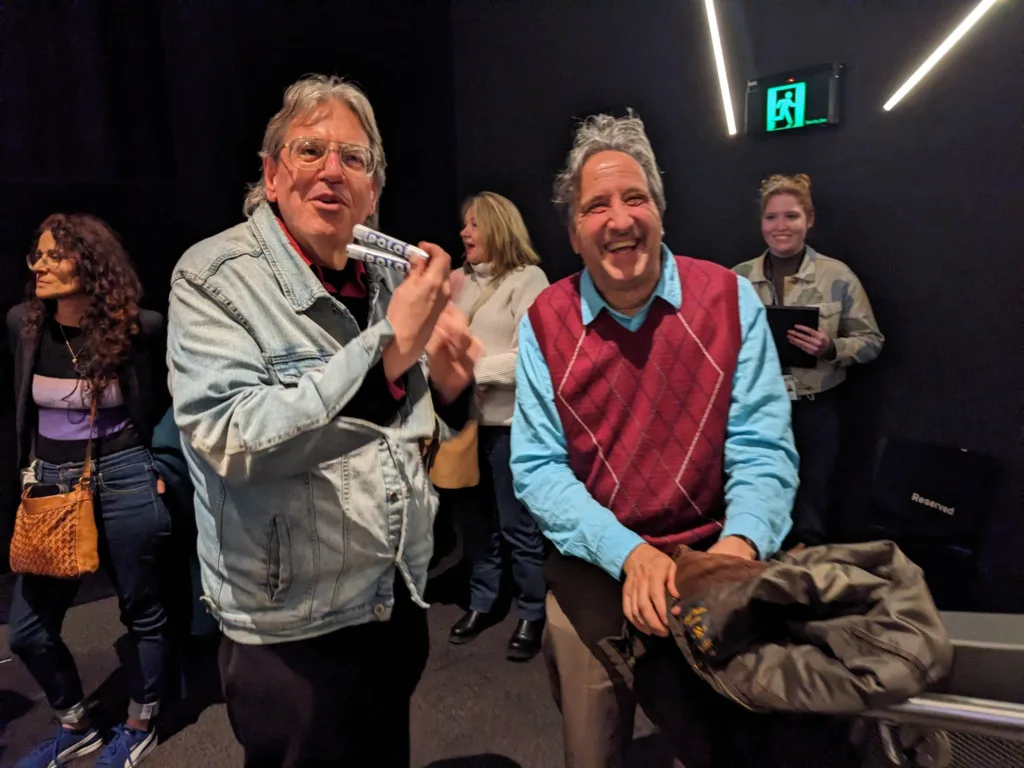
He let this sweet, moving and very human ride of what is the essence of My Darling in Stirling, overtake him. When the film ended, I simply asked him (hiding my surprise at his peacefulness and patience), “what did you think?” To which he quietly replied, “I liked it.”
The man was from thereon changed, well perhaps wishful thinking. It nonetheless really left an impression on him; My Darling in Stirling really leaves an impression. It soothes.
“What do you think of my view of your film Bill?” I ask the calm and friendly director, “and anything you’d like to add?”
“I think your view of the film is very perceptive! You’ve immediately grasped that the form of the film is something different to conventional forms, that it has a peaceful and subtle tone and rhythm to it, that it values the everyday world and the tender or startling moments that can happen in this everyday world. It is an open film, and it invites the viewer to also be open and explore the situations and feelings on show, and indeed, cynics would dismiss or mock this film. It’s a film of innocence and joy, and melancholy, and these things are rare in today’s cinema,” Bill said.
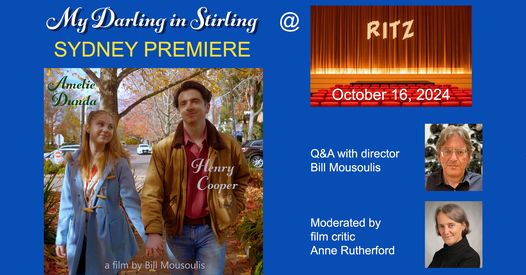
And there you have it! Thank you Bill, for My Darling in Stirling, for poignantly yet gently portraying being human.
